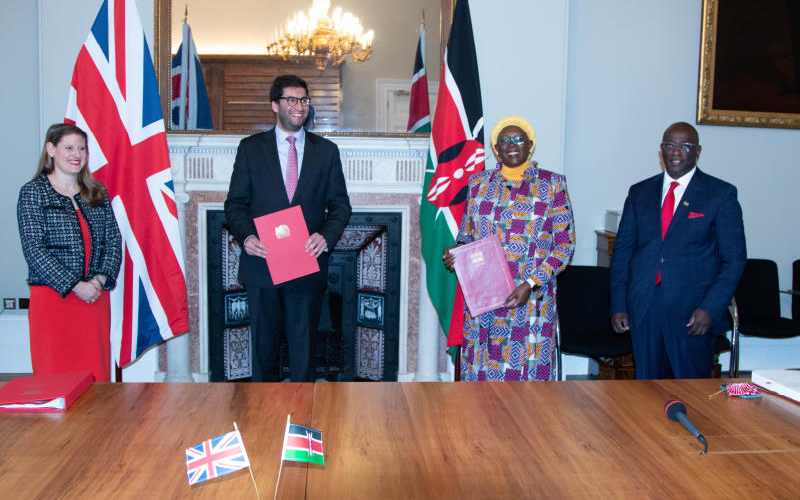×
The Standard e-Paper
Smart Minds Choose Us

The contentious trade deal between Kenya and the United Kingdom (UK) is legally in force after a year of negotiations and parliamentary approval by both countries.
The agreement became operational yesterday after top officials from the two countries signed and exchanged instruments of ratification.